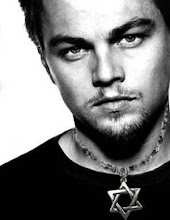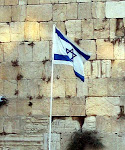By The Associate Press
Politics threatened to overshadow the inaugural Youth Olympic Games after an Iranian athlete cited injury before withdrawing from the boys taekwondo final against an Israeli athlete on the first full day of competition.
The Iranian delegation said Mohammad Soleimani aggravated an injury and was taken to a hospital for treatment. Soleimani was unable to face Israel's Gili Haimovitz or attend the medal ceremony late Sunday.

Israeli officials said they expected Iran to refuse to compete and that the withdrawal was politically motivated. Daniel Oren, head of the Israeli delegation, said he was thrilled at the gold medal but expressed frustration that the victory was not earned in the final.
"When Gili won the semifinal, we knew the Iranian was making the final. Already, we knew that the Iranians would not come," Oren said. "This is their system. On the one hand, we got the gold medal. It's very exciting for us. On the other hand, we would prefer winning by competing."
Haimovitz said he was happy to have won gold.
"Actually, I don't want to get into politics or that kind of thing," the 17-year-old Oren said. "I don't know. I was ready for a fight. If he came out or not, I don't care."
An Iranian official did not immediately respond to calls seeking comment.
International Olympic Committee spokesman Mark Adams said it is "my understanding is that he was taken to hospital and unable to compete."
The World Taekwondo Federation confirmed Haimovitz's victory. When contacted by The Associated Press, the federation spokesman denied that there was a political motive for the withdrawal.
Alex Gilady, an IOC member from Israel who handed out the medals for the competition, said it was a tactic by Iran to avoid violation of Olympic rules.
"Once he (Soleimani) was injured, that meant he still would win the silver ... have to stand on the podium and listen to the Israeli anthem and see the Israeli flag over the Iranian flag," Gilady said. "They put him in an ambulance so at least they would not create a crisis that would have demanded further action. So it looks like everything is OK."
Iran in the past has stated that its policy is to withdraw from competing against Israel because it does not recognize the country. At the 2004 Athens Olympics, Iranian Arash Miresmaeili - a two-time world judo champion - refused to compete against Israel's Ehud Vaks in the opening round of the 66kg competition. He said his decision was to show solidarity for the Palestinian cause.
Haimovitz's victory was Israel's first gold medal of the Games, a 12-day event which will feature 3,600 athletes ages 14 to 18 from 204 national Olympic committees competing in 26 sports across Singapore.
Youth Olympics organizers have sought to emphasize the educational and cultural benefits of bringing together teenage athletes from around the world.
In an unofficial medal tally because organizers are not collating standings, Russia led with six followed by China with four and the United States with three after the first day of competition.
On Monday, medals will be awarded in fencing, swimming, taekwondo, triathlon, wrestling and weightlifting.
"When Gili won the semifinal, we knew the Iranian was making the final. Already, we knew that the Iranians would not come," Oren said. "This is their system. On the one hand, we got the gold medal. It's very exciting for us. On the other hand, we would prefer winning by competing."
Haimovitz said he was happy to have won gold.
"Actually, I don't want to get into politics or that kind of thing," the 17-year-old Oren said. "I don't know. I was ready for a fight. If he came out or not, I don't care."
An Iranian official did not immediately respond to calls seeking comment.
International Olympic Committee spokesman Mark Adams said it is "my understanding is that he was taken to hospital and unable to compete."
The World Taekwondo Federation confirmed Haimovitz's victory. When contacted by The Associated Press, the federation spokesman denied that there was a political motive for the withdrawal.
Alex Gilady, an IOC member from Israel who handed out the medals for the competition, said it was a tactic by Iran to avoid violation of Olympic rules.
"Once he (Soleimani) was injured, that meant he still would win the silver ... have to stand on the podium and listen to the Israeli anthem and see the Israeli flag over the Iranian flag," Gilady said. "They put him in an ambulance so at least they would not create a crisis that would have demanded further action. So it looks like everything is OK."
Iran in the past has stated that its policy is to withdraw from competing against Israel because it does not recognize the country. At the 2004 Athens Olympics, Iranian Arash Miresmaeili - a two-time world judo champion - refused to compete against Israel's Ehud Vaks in the opening round of the 66kg competition. He said his decision was to show solidarity for the Palestinian cause.
Haimovitz's victory was Israel's first gold medal of the Games, a 12-day event which will feature 3,600 athletes ages 14 to 18 from 204 national Olympic committees competing in 26 sports across Singapore.
Youth Olympics organizers have sought to emphasize the educational and cultural benefits of bringing together teenage athletes from around the world.
In an unofficial medal tally because organizers are not collating standings, Russia led with six followed by China with four and the United States with three after the first day of competition.
On Monday, medals will be awarded in fencing, swimming, taekwondo, triathlon, wrestling and weightlifting.









.jpg)




